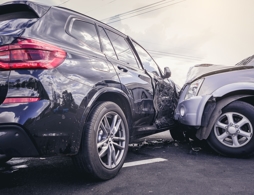

Being involved in a car accident in Harris County can disrupt your life instantly. If you’re seeking guidance on how to navigate the aftermath, this comprehensive guide provides clear, actionable steps to build a strong case – from immediate actions at the accident scene to negotiating with insurance companies and pursuing litigation if necessary. Dealing with injuries, mounting medical bills, and persistent insurance adjusters can be overwhelming. Texas’s fault-based insurance laws present both opportunities and challenges that accident victims must carefully manage. Whether you’re facing minor injuries or significant trauma, understanding the right steps to take can make the difference between receiving fair compensation and settling for less than you deserve.
What Does It Take to Win a Car Accident Case in Harris County?
Winning a car accident case in Harris County requires a clear understanding of Texas’s legal framework and prompt, strategic action. Texas operates under an “at-fault” system for car accidents, meaning the driver determined to be at fault is responsible for the damages resulting from the accident. This includes medical expenses, property damage, lost wages, and pain and suffering.
What Should I Do Immediately After a Car Accident
Taking prompt and appropriate actions at the scene of a car accident is crucial for your safety and to protect your legal rights.
Ensure Everyone’s Safety
First, check yourself and others for injuries. If possible, move vehicles out of traffic to a safe location and turn on hazard lights to alert other drivers. If moving the vehicles isn’t possible, stay inside with seatbelts fastened until help arrives. This minimizes the risk of further accidents or injuries.
Call 911 and Report the Accident
Texas law requires you to report accidents involving injury, death, or property damage exceeding $1,000. Even in minor accidents, calling 911 ensures that a police report is filed, which can be vital for insurance claims and legal proceedings. Additionally, emergency responders can provide necessary medical assistance.
Exchange Information with Other Parties
Collect the following information from all drivers involved:
- Full names and contact details
- Driver’s license numbers
- Vehicle registration numbers
- Insurance company names and policy numbers
Avoid discussing fault or details of the accident; simply exchange the required information.
Document the Accident Scene
Use your smartphone to take photos of:
- Vehicle damage
- License plates
- Road conditions and traffic signs
- Any visible injuries
These images can serve as critical evidence during insurance claims or legal actions.
Gather Witness Information
If there are any witnesses, obtain their names and contact information. Witness statements can provide an objective account of the accident, which may be beneficial if there are disputes about what occurred.
Seek Medical Attention
Even if you feel fine, it’s advisable to see a healthcare professional promptly. Some injuries may not be immediately apparent. Medical records will also serve as documentation linking your injuries to the accident, which is essential for any personal injury claims.
How Does Texas’s Fault-Based Insurance System Affect My Car Accident Claim?
Texas operates under a “fault” insurance system, meaning the driver responsible for causing the accident is liable for the resulting damages.
What Is a Fault-Based Insurance System?
In a fault-based system like Texas’s, the at-fault driver’s insurance company is responsible for covering the damages and injuries resulting from the accident. This includes medical expenses, property damage, lost wages, and pain and suffering. Unlike “no-fault” states, where each party’s insurance covers their own damages regardless of fault, Texas requires a thorough investigation to establish liability. This process often involves analyzing police reports, eyewitness testimonies, and other evidence to determine who was at fault.
How Is Fault Determined in Texas?
Determining fault in a Texas car accident involves evaluating various forms of evidence, including:
- Police Reports: Official documentation of the accident scene and initial assessments.
- Eyewitness Statements: Accounts from individuals who witnessed the accident.
- Traffic Camera Footage: Visual evidence capturing the incident.
- Expert Testimonies: Insights from accident reconstruction specialists.
The goal is to establish a clear picture of the events leading up to the accident to assign appropriate responsibility.
What Is Modified Comparative Negligence and How Does It Impact My Case?
Texas follows a “modified comparative negligence” rule, also known as the 51% bar rule. Under this rule, you can recover damages if you are found to be 50% or less at fault for the accident. However, your compensation will be reduced by your percentage of fault. For example, if you’re awarded $100,000 in damages but are found to be 20% at fault, your recovery will be reduced by 20%, resulting in an $80,000 award. If you’re found to be more than 50% at fault, you are barred from recovering any damages.
What Are the Minimum Insurance Requirements in Texas?
Texas law requires drivers to carry minimum liability insurance coverage, often referred to as 30/60/25 coverage:
- $30,000 for bodily injury per person.
- $60,000 for total bodily injury per accident.
- $25,000 for property damage per accident.
These minimums are designed to ensure that drivers can cover the costs associated with accidents they cause.
How Can an Attorney Assist Me in Navigating These Legal Complexities?
The Harris County car accident attorneys at Goldenzweig Law Group are well-versed in Texas’s fault laws and the intricacies of the modified comparative negligence system. We can help you gather and preserve critical evidence, accurately assess fault, and ensure that all legal deadlines are met. Our goal is to build a compelling case that positions you for the maximum possible recovery.
How Does Texas’s Fault-Based Insurance System Affect My Car Accident Claim?
Texas operates under a fault-based insurance system, meaning the driver who is determined to be at fault for causing a car accident is legally responsible for the resulting damages. This includes medical expenses, property damage, lost wages, and pain and suffering. Unlike no-fault states, where each party’s insurance covers their own damages regardless of fault, Texas requires a thorough investigation to establish liability. This process often involves analyzing police reports, eyewitness testimonies, and other evidence to determine who was at fault.
In situations where multiple parties share responsibility for an accident, Texas follows the “modified comparative negligence” rule, also known as the 51% bar rule. Under this rule, you can recover damages if you are found to be 50% or less at fault for the accident. However, your compensation will be reduced by your percentage of fault. For example, if you’re awarded $100,000 in damages but are found to be 20% at fault, your recovery will be reduced by 20%, resulting in an $80,000 award. If you’re found to be more than 50% at fault, you are barred from recovering any damages.
We can help you gather and preserve critical evidence, accurately assess fault, and ensure that all legal deadlines are met. Our goal is to build a compelling case that positions you for the maximum possible recovery.
How to Communicate with Insurance Companies
Dealing with insurance companies after a car accident can be challenging. Understanding how to navigate these communications is crucial to protect your rights and maximize your potential settlement.
Notify Your Own Insurance Company Promptly
Texas law requires drivers to report car accidents to their insurance providers as soon as possible. Even if you didn’t cause the accident, you must report it. When contacting your insurer, stick to the facts about what happened and who was involved. Avoid speculating on fault or providing unnecessary details that could impact your claim.
Be Cautious When Speaking with Insurance Adjusters
Insurance adjusters may seem friendly, but their goal is often to minimize what the company pays out. Stick to the facts when discussing the accident, avoid admitting fault, and never agree to a recorded statement without speaking to a lawyer first. If the other driver’s insurance company contacts you, you must not talk to them directly. Instead, consider having an experienced attorney handle communications to protect your rights and ensure you’re not pressured into accepting a low settlement.
Keep Detailed Records of All Communications
Maintain a thorough record of all your communications with your insurance company, the other parties involved, and any repair shops. Keep copies of receipts, estimates, and any medical bills. These records will be useful if any disputes arise or if your claim is delayed.
Consult with an Experienced Car Accident Attorney
Rather than potentially settle your case for less than it’s worth, consider hiring an experienced Texas car accident lawyer. When you have a lawyer representing you, the insurance company cannot communicate with you directly. All communication – including settlement negotiations – must go through your lawyer. Your attorney knows how to accurately evaluate your claim’s total value and how best to preserve evidence.
How to Build a Strong Legal Case
Establishing a solid legal foundation is essential for a successful car accident claim in Texas. This involves gathering compelling evidence, documenting your injuries, and understanding the legal principles that apply to your case.
What Evidence Should I Collect to Support My Claim?
Begin by collecting all relevant evidence from the accident scene. This includes photographs of vehicle damage, road conditions, and any visible injuries. Obtain a copy of the police report, as it provides an official account of the incident. Gather contact information from witnesses who can provide statements about what occurred. Additionally, keep records of all medical treatments, expenses, and any correspondence with insurance companies.
How Do I Establish Negligence in My Case?
In Texas, proving negligence requires demonstrating four key elements:
- Duty of Care: The other driver had a legal obligation to operate their vehicle safely.
- Breach of Duty: They failed to uphold this duty through their actions or inactions.
- Causation: Their breach directly caused the accident and your injuries.
- Damages: You suffered losses, such as medical bills or lost wages, as a result.
Collecting and presenting evidence that clearly illustrates these elements is crucial for a successful claim.
Why Is Legal Representation Important?
Navigating the legal complexities of a car accident claim can be challenging. The Harris County car accident attorneys at Goldenzweig Law Group are experienced in Texas personal injury law and can assist in building a compelling case. We can help gather and preserve critical evidence, accurately assess fault, and ensure that all legal deadlines are met. Our goal is to build a compelling case that positions you for the maximum possible recovery.
How to Negotiate a Fair Settlement
Negotiating a fair settlement after a car accident involves preparation, understanding of your claim’s value, and strategic communication with insurance companies.
Assess the Full Value of Your Claim
Before entering negotiations, calculate the total value of your claim, including medical expenses, lost wages, property damage, and pain and suffering. This comprehensive assessment ensures you have a clear baseline for negotiations.
Be Cautious with Initial Offers
Insurance companies often present low initial settlement offers. It’s important not to accept the first offer without evaluating whether it adequately covers your damages. Politely decline insufficient offers and provide evidence to support your counteroffer.
Document All Communications
Keep detailed records of all interactions with insurance adjusters, including dates, times, and summaries of conversations. Request that all settlement offers and agreements be provided in writing to ensure clarity and accountability.
Consider Legal Representation
Engaging an experienced car accident attorney can significantly enhance your negotiation position. The Harris County car accident attorneys at Goldenzweig Law Group are skilled in negotiating with insurance companies to secure fair settlements. We can handle communications on your behalf, allowing you to focus on recovery while we advocate for your best interests.
When Should You Consider Litigation
If settlement negotiations stall or the insurance company refuses to offer fair compensation, it may be time to consider litigation. In Texas, you generally have two years from the date of the accident to file a personal injury lawsuit. Missing this deadline can forfeit your right to seek compensation.
Filing a lawsuit can also provide leverage in negotiations, especially if the insurer is acting in bad faith or undervaluing your claim. The Harris County car accident attorneys at Goldenzweig Law Group can assess your case, advise on the best course of action, and ensure all legal deadlines are met.
Contact Our Harris County Car Accident Attorneys Today
If you’ve been injured in a car accident in Harris County, don’t navigate the legal process alone. The experienced car accident attorneys at Goldenzweig Law Group are here to help you understand your rights and pursue the compensation you deserve. Contact us today at 713-561-5003 or visit our office at 6575 West Loop South, Suite 420, Bellaire, TX 77401 to schedule a free consultation. Let us put our knowledge and dedication to work for you.
Navigation
Related Posts


How to Prove Pain and Suffering in Your Harris County Car Accident Claim?
Continue Reading

